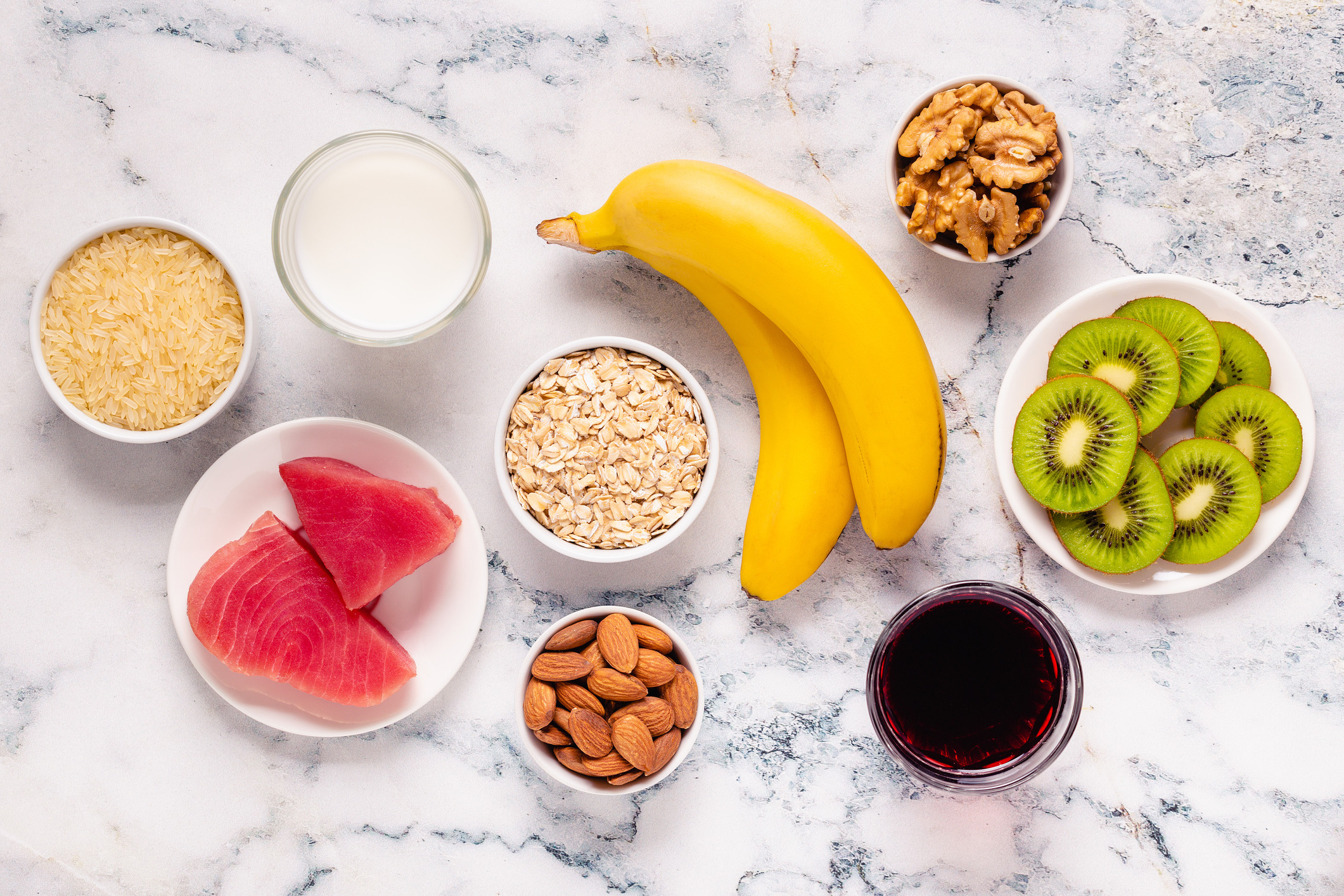
Trying to lose weight? Be careful not to lose muscle

Is your skin problem actually an autoimmune condition?

People with diabetes face higher risk of hearing loss

Antibiotic-free fixes for recurrent UTIs

Musculoskeletal syndrome of menopause: When menopause makes you ache all over

When can older women stop getting mammograms?

To lose weight, especially harmful belly fat, combine diet and exercise

Can men hold off on treating recurring prostate cancer?

The 7 types of rest and why we need them all

What are the early warning signs of cervical cancer?
Mental Health Archive
Articles
Focusing on past successes can help you make better decisions
In the journals
People with anxiety or depression often have trouble making sound decisions. But a study suggests their judgment can improve if they focus on past successes instead of mistakes. The findings were published online Dec. 22, 2020, by the journal eLife.
Researchers recruited 86 adults, divided into three groups. In one group were people diagnosed with generalized anxiety disorder or major depression. Another group consisted of people who showed anxiety or depression symptoms, like excessive worrying and not feeling good about the future, but were not clinically diagnosed. The final group included those without anxiety or depression.
Depression and heart disease: A double-edged sword?
Lifestyle changes — along with other proven therapies — can help improve these often-overlapping conditions.
Everyone goes through periods of feeling gloomy, irritable, or listless at least once in a while. And these emotions are perfectly normal after a diagnosis of a serious health problem such as heart disease. But if those unpleasant feelings drag on for weeks and gradually erase your sense of well-being, you may have depression.
Over a lifetime, about one in five Americans is affected by depression. But the risk of depression in people who've had a heart attack is three times as high as the risk among the general population.
Is it dementia or something else?
Many cases of memory loss aren't related to dementia, but stem from other, treatable conditions.
You've been forgetting things lately — your keys, or maybe names. Sometimes you struggle to find the right word in conversations or repeat yourself to others. You may worry: are these signs of dementia?
If this sounds like you, you're not alone. Many people find their way into Dr. Tammy Hshieh's office wondering the same thing. But most of the time, it's not dementia causing their problems, says Dr. Hshieh, a geriatrician at Harvard-affiliated Brigham and Women's Hospital and Dana-Farber Cancer Institute and assistant professor of medicine at Harvard Medical School.
Staving off dementia when you have mild cognitive impairment
The shift from this condition to dementia is not necessarily inevitable.
Image: © gradyreese/Getty Images
Will I get dementia? That common question takes on urgency if you have mild cognitive impairment (MCI), a slight but noticeable change in memory and thinking skills. But the progression from MCI to dementia is not automatic. In fact, MCI is not always permanent. "It depends on the underlying cause," says Dr. Joel Salinas, a neurologist at Harvard-affiliated Massachusetts General Hospital.
What are the causes of MCI?
MCI is not dementia (see "What is dementia?"), but it's not normal thinking, either. It often stems from disease or treatments for disease, including
Tuning in: How music may affect your heart
Listening to music may boost exercise ability, ease stress and anxiety, and enhance recovery from strokes.
Image: © shironosov/Getty Images
Whether you prefer Stravinsky's symphonies or the Beatles' ballads, you probably listen mostly because you simply like how they sound. You might not realize that music engages not only your auditory system but many other parts of your brain as well, including areas responsible for movement, language, attention, memory, and emotion.
"There is no other stimulus on earth that simultaneously engages our brains as widely as music does," says Brian Harris, certified neurologic music therapist at Harvard-affiliated Spaulding Rehabilitation Hospital. This global activation happens whether you listen to music, play an instrument, or sing — even informally in the car or the shower, he says. And it helps to explain how and why music therapy works (see "Singing — and striding — stroke survivors").
Sour mood getting you down? Get back to nature
Research suggests that mood disorders can be lifted by spending more time outdoors.
Image: © Sidekick/Getty Images
Looking for a simple way to help reduce stress, anxiety, and depression, and maybe even improve your memory? Take a walk in the woods.
"Many men are at higher risk for mood disorders as they age, from dealing with sudden life changes like health issues, the loss of loved ones, and even the new world of retirement," says Dr. Jason Strauss, director of geriatric psychiatry at Harvard-affiliated Cambridge Health Alliance. "They may not want to turn to medication or therapy for help, and for many, interacting with nature is one of the best self-improvement tools they can use."
Numb from the news? Understanding why and what to do may help
The daily onslaught of news during the past year has left many people in a steady state of fatigue, resignation, and grief. The symptoms of collective trauma are widespread and familiar, but one merits special attention: numbness, which is one possible response to an overwhelming situation.
Could what we eat improve our sleep?
Diet, exercise, and sleep work together, and all three can have an effect on our daily well-being and longevity. Sleep impacts our eating patterns, and our eating patterns affect our sleep: lack of quality sleep may make people eat more, and make less healthy food choices, but certain foods contain substances that may enhance sleep.
Is crying good for you?
Crying is a natural response to a range of emotions, but is it good for your health? Crying is an important safety valve: it acts as a safety valve for our emotions, and emotional tears flush stress hormones and other toxins out of our systems.
Coping with relationship fatigue
Too much time together makes for tense moments. Cutting each other some slack and setting ground rules will help.
There's such a thing as too much togetherness at home, no matter if you're with a romantic partner, an adult child, a grandchild, or a friend. "Because of the pandemic, we're frozen in place with people, but we aren't meant to be in the same space all day long," says Dr. Robert Waldinger, a psychiatrist with Harvard-affiliated Massachusetts General Hospital.
Keeping the peace starts with understanding why you may be getting on each other's nerves. Then you can try following a few rules to get along better.

Trying to lose weight? Be careful not to lose muscle

Is your skin problem actually an autoimmune condition?

People with diabetes face higher risk of hearing loss

Antibiotic-free fixes for recurrent UTIs

Musculoskeletal syndrome of menopause: When menopause makes you ache all over

When can older women stop getting mammograms?

To lose weight, especially harmful belly fat, combine diet and exercise

Can men hold off on treating recurring prostate cancer?

The 7 types of rest and why we need them all

What are the early warning signs of cervical cancer?
Free Healthbeat Signup
Get the latest in health news delivered to your inbox!
Sign Up











